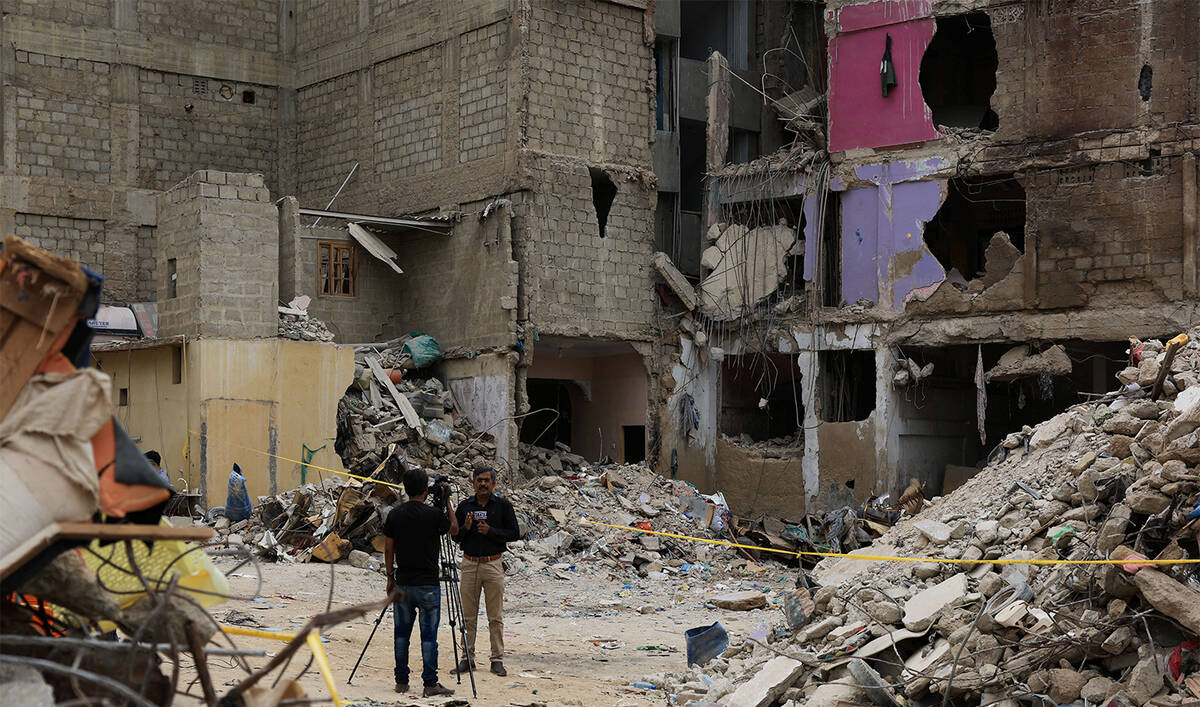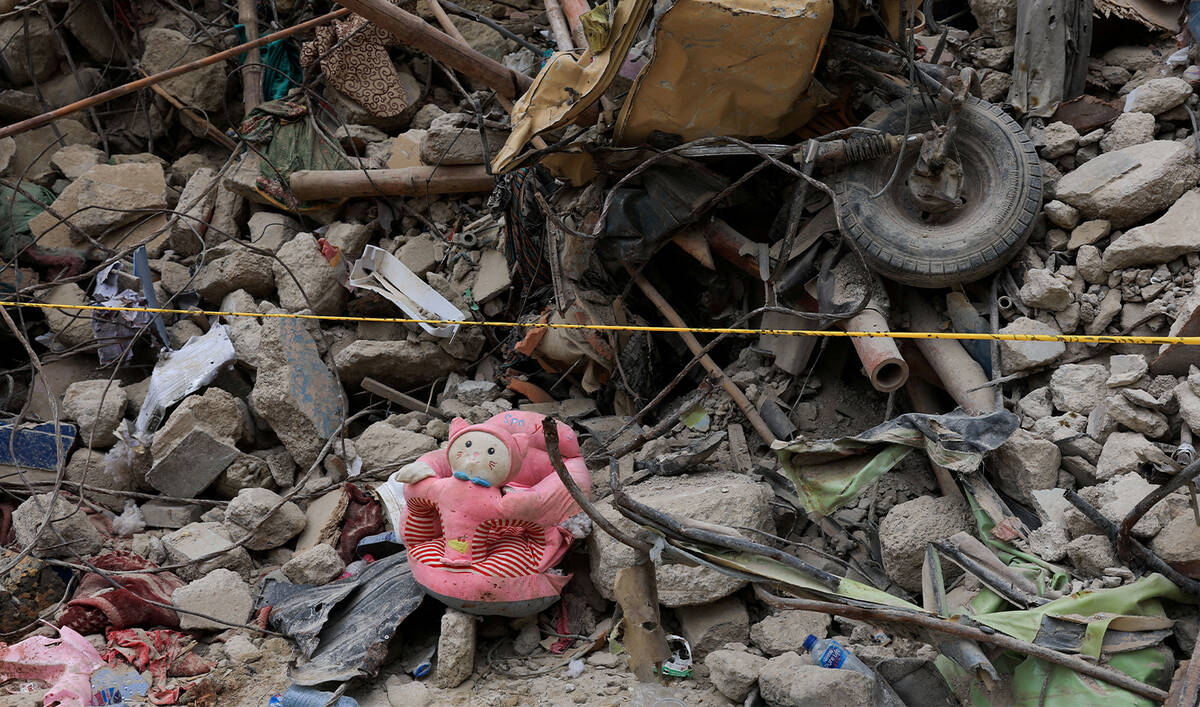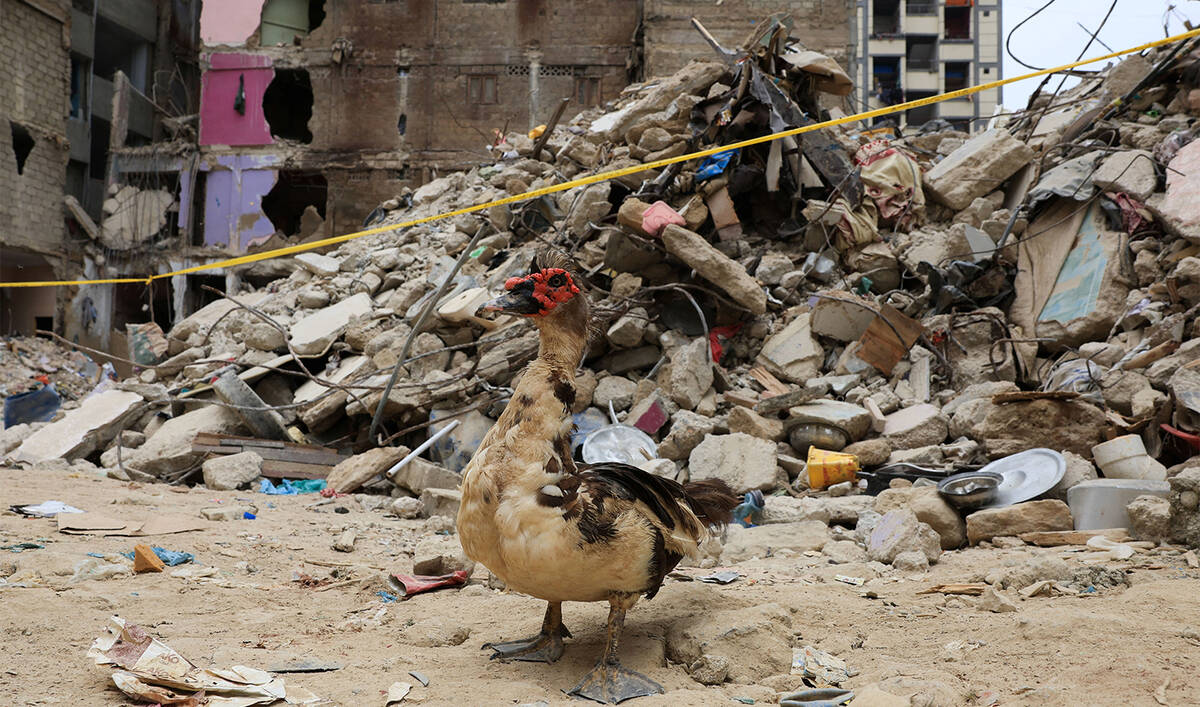KARACHI: Survivors of a building collapse that killed 27 people in the Pakistani city of Karachi were trying on Monday to come to terms with the loss of loved ones and their homes.
The five-story building collapsed on Friday in the overcrowded inner-city Lyari district where many working-class and poor families live in aging apartment blocks. The site is now a tangle of twisted metal, shattered concrete and scattered belongings, schoolbooks, shoes and sewing machines.
On Monday, rescue officials said the death toll had reached 27 and dozens of people were being housed in makeshift shelters following the building’s collapse and the evacuation of nearby buildings over structural fears.
‚ÄúI grew up in that building. I knew everyone who lived there,‚ÄĚ said Imdad Hussain, 28, a fisherman who lost neighbors, childhood friends and seven members of his extended family.

Members of the media report from the ground near a five-storey residential building that collapsed on Friday, July 4, in Karachi, Pakistan, on July 7, 2025. (REUTERS)
He is now sheltering with relatives, and family members are in mourning as they try to figure out what the future holds.
‚ÄúWe‚Äôve lost our home, our people. I don‚Äôt know how we‚Äôll start again,‚ÄĚ he said.
Officials in Karachi, the capital of the southeastern province of Sindh, said the building had received multiple evacuation notices since 2023, including a final one in late June.
Saeed Ghani, Provincial Minister of Sindh for Local Governments, said the Karachi commissioner ‚ÄĒ who oversees the city administration ‚ÄĒ had been tasked with inspecting 51 buildings identified as ‚Äúextremely dangerous‚ÄĚ to prevent similar collapses.

Personal belongings lie amid the rubble of a five-storey residential building that collapsed on Friday, July 4, in Karachi, Pakistan, on July 7, 2025. (REUTERS)
BUILDING SHOOK VIOLENTLY
Residents said the building in Lyari, which has been home to generations of working-class families from minority and migrant backgrounds, shook violently on Friday before collapsing in a cloud of dust.
Rescue workers had been digging through the debris since Friday but declared the search over late on Sunday.
They said about 100 residents from 12 families had been living in the building, and nearly 50 more families had been displaced after three neighboring buildings were declared unsafe and evacuated.

A duck walks near the pile of rubble and belongings after a five-storey residential building collapsed on Friday, July 4, in Karachi, Pakistan, on July 7, 2025. (REUTER)
Lakshmi, a school janitor who lived next door to the collapsed building, said her sister had lived in the building that came down and called moments before it fell to say it was shaking.
Her sister survived, but Lakshmi feared losing the gold she had left with her for safekeeping before her daughter’s wedding.
‚ÄúWe got out with our lives, but everything else is gone, with no certainty about what is to come,‚ÄĚ Lakshmi said.


















